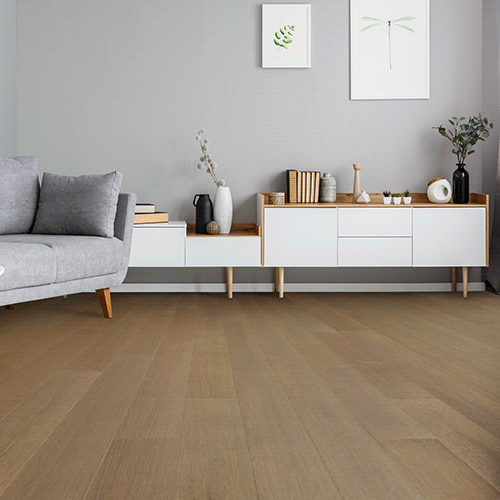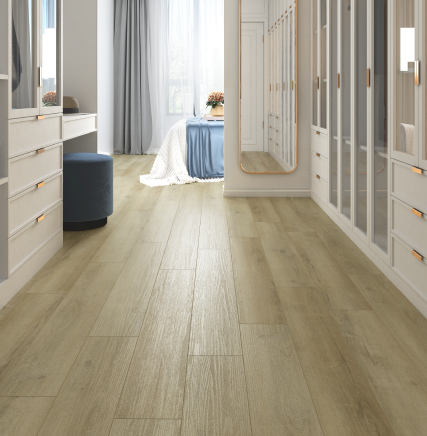Porcelain and ceramic tile flooring offer old-world elegance with modern conveniences.
Porcelain tile and ceramic tile flooring from Empire Today® offer a functional and visually striking upgrade to any space in your home. Resistant to moisture, scratches, and scuffs, natural floor tile is an ideal option for bathrooms, kitchens, mudrooms, or foyers. Empire’s® selection of tile flooring includes a wide array of shapes, sizes, and finishes, providing a versatile foundation for your next renovation.
What are the advantages and disadvantages of tile flooring installations?
As with just about any home improvement product, deciding whether a tile flooring installation is the best solution for your needs will come down to a combination of personal preference and the measurable pros and cons of the tile products. One of the main advantages of tile flooring is the minimal maintenance it requires. It’s easy to sweep up dry messes from a tile floor, and anything more stubborn can typically be mopped or cleaned with a sponge and mild soap and water.
Tile flooring is highly resistant to scratches and scuffs, making it ideal for homes with pets or lots of foot traffic. It’s a great choice for homes in hot and humid environments and it will usually feel much “cooler” underfoot. The myriad available tile styles, from bold colors to stone-look tiles that perfectly mimic the look of marble, create near limitless design possibilities. Conversely, a simple gray floor tile makes an excellent neutral canvas around which you can design—and continuously redesign—a unique home.
Of course, there are also some disadvantages to tile flooring that you should consider before deciding. We previously mentioned that tile floors tend to stay cool to the touch. While that’s a plus in warm climes, it can be undesirable in colder environments. Tile’s dense construction also makes for quite a hard surface, which can be uncomfortable for long periods of standing or in rooms where children play.
Should you choose a porcelain floor installation or a ceramic tile floor installation?
Porcelain and ceramic are the two most popular of the many types of tile flooring installation options available on the market today. Each has its pros and cons, and deciding between the two can be challenging. Tile professionals are here to assist you in the selection process, but here’s a quick rundown on the benefits of each type and a basic idea of how to decide between porcelain and ceramic tile flooring.
Because they share a similar base material and construction process, porcelain and ceramic tiles also share many attributes—like durability and water resistance—but with some slight variations. Porcelain is a denser material, so porcelain tile flooring will be a bit more resistant to damage and moisture. It also has an edge in aesthetics, as porcelain tile manufacturers can generally make more intricate designs and textures with the material. Additionally, the color of porcelain tile is usually consistent throughout the entire tile, compared to ceramic tile, whose body will often be a different hue than the surface. This means that in the event that you do chip a ceramic tile, it’s more likely to be obviously visible than a chip on porcelain.
The biggest downside to porcelain tile, when compared to ceramic, is that since porcelain floor tiles are the more dense material, they’re also a bit more difficult to install. And that means that the overall cost of porcelain tile floor installation will, on average, be greater than the cost of ceramic tile flooring.



